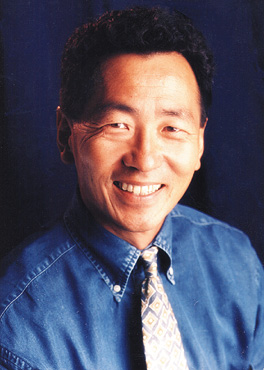|
ASIAN AMERICAN BUSINESS |
CONTACT US
|
ADVERTISING INFO
© 1996-2013 Asian Media Group Inc
No part of the contents of this site may be reproduced without prior written permission.
MICROSOFT'S ASIAN PIONEER
PAGE 3 of 10
GS: How did you hear about it?
Oki: I applied. There was a fairly significant division in Colorado
Springs. The previous outstanding graduate student who preceded me went
to work for Hewlett Packard. I was also the outstanding graduate student, so
she said, Why don't you come and interview at H-P and opened the doors
there. It was a good company, known for having a good management
development program. I said, What the heck, spend a few years there. It
was a great experience.

GS: Did you do anything noteworthy over there?
Oki: I came in at a fairly entry-level sort of a position. How much can you do in four years with a company as big as H-P? I quickly transferred from Colorado Springs to a startup division, which for me was a great experience. I would describe myself as being very entrepreneurial. Going with a fresh new division where you're initially working out of not a garage but a warehouse and helping that division to grow and developing its first products, and on and on, it was really a phenomenal experience.
GS: Were you selling mini-computers at H-P?
Oki: They were mini-computers in today's sense. Back then PCs hadn't been invented yet. They were really the smallest commercial business system in H-P's product line. It was very state-of-the-art, leading-edge kind of technology.
GS: What made you leave to start your own company?
Oki: I was a little impatient. H-P's a great company but they want to take you along at their speed. I guess my speed was a little bit faster than their speed. I met a couple of guys, some Harvard MBAs, who also wanted to found a company. It was in the days when there was a lot of venture capital money chasing a lot of bad deals. So we said, What the heck, why not write a business plan and try to get some of that money that's being thrown around. We got funded with about three and a half million dollars.
[CONTINUED BELOW]
GS: How did that turn out?
Oki: I left it when we started having a lot of friction between us and we couldn't agree on strategy, which is kind of easy to understand--four MBAs, all fairly intelligent, all opinionated. We couldn't agree on anything. So I left with one of the other founders. The other two stayed.
GS: What was the source of friction?
Oki: Strategy, raising second-round financing. Do you take a low-margin approach or a high-margin approach which the venture capitalist would want to see.
GS: Was the company successful?
Oki: It's hard to measure success as a startup. Are you achieving the plan? You could say that we were successful in terms of developing product and hiring people and opening offices and getting initial sales. Where I wouldn't judge it a success is that we weren't able to really raise the second round of financing which put a lot of cash flow pressures on the business. Roughly six months after I left it, it went into Chapter 11. I think it was Corning Glass that ultimately bought the company and took it out of Chapter 11.
GS: What interest did Corning Glass have in purchasing a company developing medical office systems?
Oki: It was a very diversified company. They had a division that was doing medical systems and the Sequoia Group fit in very well with their product mix and their strategy. PAGE 4
| "It was in the days when there was a lot of venture capital money chasing a lot of bad deals." |
